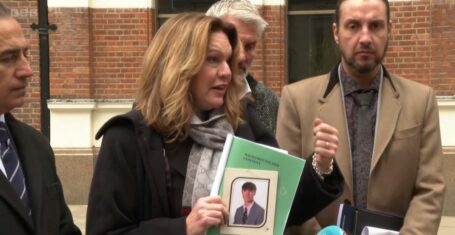
RSC The Winter’s Tale
A tale of jealousy, paranoia and redemption at TRCH
The orthodox understanding of this, one of Shakespeare’s ‘problem plays’, is that it starts in wintery Sicilia.
King Leontes entertains his great friend, the King of Bohemia, Polixenes. Yet when his paranoia and jealousy lead him to accuse his friend of fathering his wife’s unborn child, Polixenes escapes, and the scene changes to the summery, pastoral scenes of Bohemia.
Lucy Bailey ’s interpretation of these two places made for a most fascinating set. Choosing to swap the seasons of the locations, and setting the play in Britain in the 1860s, the audience saw a Sicily that was a hedonistic, pre-Raphaelite throw back, complete with classical costumes, drapes, silver chalices and hookah pipes. Bohemia, on the other hand, was a Northern England coastal industrial town, replicating bleak, seaside charm with deckchairs, ice-cream and a bit o’ seaweed.
The problem with this dichotomy of two cultures set in the same era is that unfortunately, it looked a wee bit like time travel. The pre-Raphaelite brotherhood did happen in the 1860s, but it wasn’t really of its time, being a movement desperate to revive the classical art of Raphael and Michelangelo.
Consequently, instead of feeling like Victorian Britain, the play rather felt as if the audience were watching Ithaca vs. Bridlington, the latter completed with a 2 storey factory chimney slowly emerging from floor to rig. While this stunt was impressive, I can’t help feel this sort of thing was flogged to death a bit at the Olympics’ Opening Ceremony, where it was done with a much bigger budget, and a river of molten iron…
But ho! These are not criticisms of the play’s execution, which was as beautiful and charming as one would expect from a professional theatre company such as the RSC.
The acting of course, was superb, and the diction was fantastic- the word ‘dildo’ ringing through the theatre like a school bell. Jo Stone-Fewings was simply awe-inspiring. Every movement this actor made seemed to communicate Leontes’ contradiction of utter conviction in his divine right, and the self-loathing that goes hand-in-hand with paranoia.
Most impressive in this production however, was the attention paid to the strength of the female characters. Put bluntly, the men in The Winter’s Tale, are all a bit pathetic, but the casting and direction ensured female solidarity and strength throughout the play.
Tara Fitzgerald is an out-spoken, intelligent and captivating Hermione, who needs no one’s pity, and is supported by a fearless, bullish Paulina (Rakie Ayola). Marvellous.
The Royal Shakespeare Company speaks for itself really, but just to be on the safe side, The Tab will speak for it too. Yes, the interpretation was not necessarily to the taste of this reviewer, but nevertheless, this was a pleasure to watch: smooth, slick and utterly captivating.









































